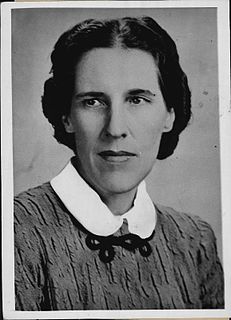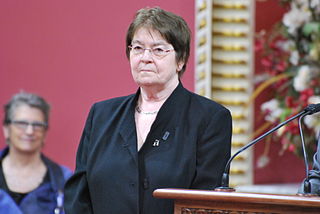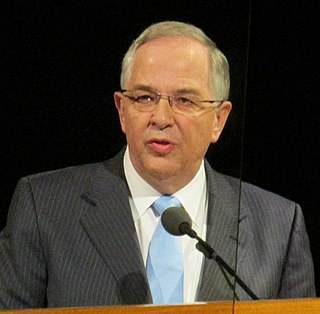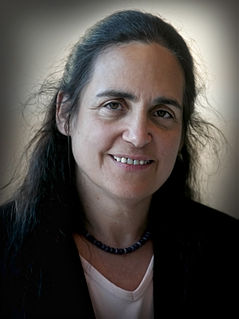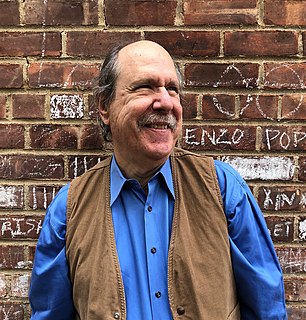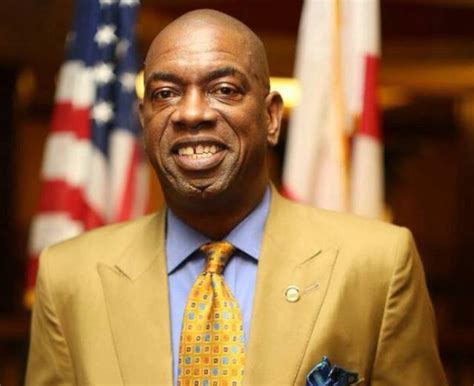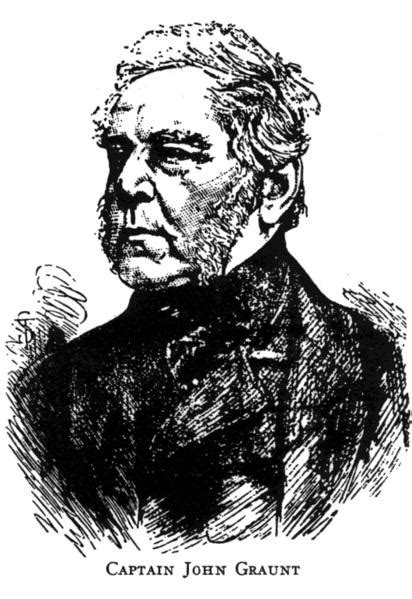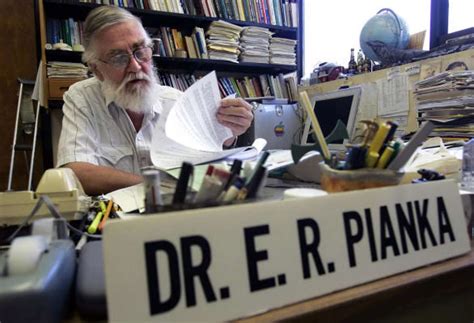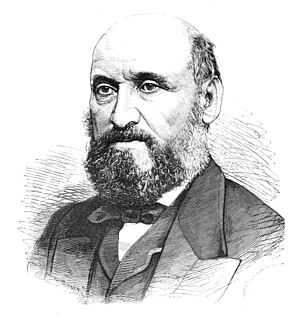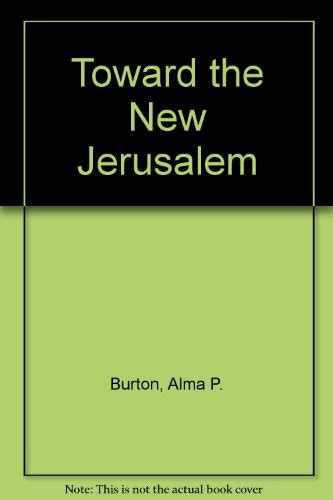Top 583 Mortality Quotes & Sayings - Page 10
Explore popular Mortality quotes.
Last updated on December 11, 2024.
One of the marks of true genius is a quality of abundance. A rich, rollicking abundance, enough to give indigestion to ordinary people. Great artists turn it out in rolls, in swatches. They cover whole ceilings with paintings, they chip out a mountainside in stone, they write not one novel but a shelf full. It follows that some of their work is better than other. As much as a third of it may be pretty bad. Shall we say this unevenness is the mark of their humanity - of their proud mortality as well as of their immortality?
The text moves like a small crustacean with compound eye and complex nervous system; throbbing, involuted, it becomes a parasite on a different body, animal, using ‘filiform protrusions through which it sucks the vital juices of its host.’ Parasite or creature in mutation on the shore, torrid / delirium: mordant mortality, systematic competition the narrator against the I, leaking gas, a lapse of memory against a promise, an inset in a book. A muscular, involuntary bulging in the breast, circling all its inner surface: mesoblast: visceral.
I had the experience of having my grandmother in a nursing home at the end of her life, and had dementia set in with my father. He was in a nursing home with dementia at the end of his life, but it happened for me personally 10 years ago. My father was much older than my mother, so I experienced it as a pretty young person. People's parents die at various ages, but my father died of mortality. He died of being an old person. Illness and stuff happened, but essentially, he was old and he was going to die.
Man alone knows that he must die; but that very knowledge raises him, in a sense, above mortality, by making him a sharer in the vision of eternal truth. He becomes the spectator of his own tragedy; he sympathizes so much with the fury of the storm that he has no ears left for the shipwrecked sailor, though the sailor were his own soul. The truth is cruel, but it can be loved, and it makes free those who have loved it.
My young friends, ... not all the whirlwinds in life are of your own making. Some come because of the wrong choices of others, and some come just because this is mortality. You are His son or His daughter. He made your spirit strong and capable of being resilient to the whirlwinds of life. The whirlwinds in your youth, like the wind against a young tree, can increase your spiritual strength, preparing you for the years ahead.
I John Hancock, . . . being advanced in years and being of perfect mind and memory-thanks be given to God-therefore calling to mind the mortality of my body and knowing it is appointed for all men once to die [Hebrews 9:27], do make and ordain this my last will and testament...Principally and first of all, I give and recommend my soul into the hands of God that gave it: and my body I recommend to the earth . . . nothing doubting but at the general resurrection I shall receive the same again by the mercy and power of God. . .
Now is the time to become a disciple of Jesus Christ, which means accepting His invitation to 'come, follow me' (Luke 18:22). This is the decision we made in our premortal lives. Now we must make it again here in mortality, every day, in every situation by taking the Savior's name upon us, remembering His atoning sacrifice, and keeping His commandments. This we covenanted to do when we were baptized, and we have the opportunity to renew those covenants each week as we partake of the sacrament.
Vampires Are Us: Understanding Our Love Affair with the Immortal Dark Side,” is now out! Quote: “Vampires let us play with death and the issue of mortality. They let us ponder what it would mean to be truly long lived. Would the long view allow us to see the world differently, imagine social structures differently? Would it increase or decrease our reverence for the planet? Vampires allow us to ask questions we usually bury.
As I thought of these things, I drew aside the curtains and looked out into the darkness, and it seemed to my troubled fancy that all those little points of light filling the sky were the furnaces of innumerable divine alchemists, who labour continually, turning lead into gold, weariness into ecstasy, bodies into souls, the darkness into God; and at their perfect labour my mortality grew heavy, and I cried out, as so many dreamers and men of letters in our age have cried, for the birth of that elaborate spiritual beauty which could alone uplift souls weighted with so many dreams.
The idea of flux, kind of constant change, whether it be our sense of time or geological time or cosmic time. It's always there, and I think that maybe it's a way of dealing with the idea of mortality, trying to acknowledge the fact that all things change, and whereas, maybe death is the end of one state of being it's the beginning of something else. I'm not talking about going to heaven or being reincarnated as a toad, I'm talking about the idea that the molecules in our bodies, or at least the atoms, were here at the beginning of the universe, and the sense that we are basically matter.
We really are immortal in the sense that Christ’s Atonement conquers death, both physical and spiritual. And provided we have so lived Today that we have claim on the Atonement’s cleansing grace, we will live forever with God. This life is not so much a time for getting and accumulating as it is a time for giving and becoming. Mortality is the battlefield upon which justice and mercy meet. But they need not meet as adversaries, for they are reconciled in the Atonement of Jesus Christ for all who wisely use Today.
My father left me with the feeling that I had to live for two people, and that if I did it well enough, somehow I could make up for the life he should have had. And his memory infused me, at a younger age than most, with a sense of my own mortality. The knowledge that I, too, could die young drove me both to try to drain the most out of every moment of life and to get on with the next big challenge. Even when I wasn't sure where I was going, I was always in a hurry.
As indicated by the increase in maternal mortality in 2010, right now it's more dangerous to give birth in California than in Kuwait or Bosnia. Amnesty International reports that women in [the United States] have a higher risk of dying due to pregnancy complications than women in forty-nine other countries (black women are almost four times as likely to die as white women). The United States spends more than any other country on maternal health care, yet our risk of dying or coming close to death during pregnancy or in childbirth remains unreasonably high.
We declare our belief in Jesus Christ and accept Him as our Savior. He will bless us and guide us in all of our efforts. As we labor here in mortality, He will strengthen us and bring us peace in time of trials. Members of The Church of Jesus Christ of Latter-day Saints walk by faith in Him whose Church it is.
Now, more than ever, we need people in space... The events of September 11 show us how vulnerable we and our civilization are down here on Earth... So let us use our strength, our awareness of mortality as a civilization, to do something truly lasting and earth-shaking for humanity. Let us join with the peoples and cultures of this planet, the diversities of its perspectives and religions and science, so we can leave it-not behind, but as a springboard to something better.
Often the lack of clear direction and goals can waste away our time and energy and contribute to imbalance in our lives. A life that gets out of balance is much like a car tire that is out of balance. It will make the operation of the car rough and unsafe. Tires in perfect balance can give a smooth and comfortable ride. So it is with life. The ride through mortality can be smoother for us when we strive to stay in balance.
Either the material order is the whole of being, wherein all transcendence is an illusion, or it is the phenomenal surface - mysterious, beautiful, terrible, harsh, and haunting - of a world of living spirits.... One should... be able to recognize that it is only the latter view that has ever had the power - over centuries and in every realm of human accomplishment - to summon desire beyond the boring limits marked by mortality, to endow the will with constancy and purpose, and to shape imagination towards ends that should not be possible within the narrow economies of the flesh.
The assumption is that life doesn't need to be navigated with lessons. You can just do it intuitively. After all, you only need to achieve autonomy from your parents, find a moderately satisfying job, form a relationship, perhaps raise some children, watch the onset of mortality in your parents' generation and eventually in your own, until one day a fatal illness starts gnawing at your innards and you calmly go to the grave, shut the coffin and are done with the self-evident business of life.
In your 20s, crises tend to be about whether you are making the correct decisions for the rest of your life, namely in your job and relationship. In your 30s, work-related issues and break-ups feature prominently. In your 40s, for women bereavement is often an issue. For men, it is still to do with their job but it has moved to "Holy crap, I've got a lot to do". In your 50s, you get features of both early and later life crises - bereavement and ill health. And that continues in your 60s, with retirement-related issues and heightened awareness of mortality.
The curse of mortality. You spend the first portion of your life learning, growing stronger, more capable. And then, through no fault of your own, your body begins to fail. You regress. Strong limbs become feeble, keen senses grow dull, hardy constitutions deteriorate. Beauty withers. Organs quit. You remember yourself in your prime, and wonder where that person went. As your wisdom and experience are peaking, your traitorous body becomes a prison.
The family endures because it offers the truth of mortality and immortality within the same group. The family endures because, better than the commune, kibbutz, or classroom, it seems to individualize and socialize its children, to make us feel at the same time unique and yet joined to all humanity, accepted as is and yet challenged to grow, loved unconditionally and yet propelled by greater expectations. Only in the family can so many extremes be reconciled and synthesized. Only in the family do we have a lifetime in which to do it.
We are left with nothing but death, the irreducible fact of our own mortality. Death after a long illness we can accept with resignation. Even accidental death we can ascribe to fate. But for a man to die of no apparent cause, for a man to die simply because he is a man, brings us so close to the invisible boundary between life and death that we no longer know which side we are on. Life becomes death, and it is as if this death has owned this life all along. Death without warning. Which is to say: life stops. And it can stop at any moment.
The subtlest change in New York is something people don't speak much about but that is in everyone's mind. The city, for the first time in its long history, is destructible. A single flight of planes no bigger than a wedge of geese can quickly end this island fantasy, burn the towers, crumble the bridges, turn the underground passages into lethal chambers, cremate the millions. The intimation of mortality is part of New York now: in the sound of jets overhead, in the black headlines of the latest edition. (Written in 1949, 22 years before the World Trade Center was completed.)
Norway, Iceland, Australia, Canada, Sweden, Switzerland, Belgium, Japan, the Netherlands, Denmark, and the United Kingdom are among the least religious societies on earth. According to the United Nations' Human Development Report (2005), they are also the healthiest, as indicated by life expectancy, adult literacy, per capita income, educational attainment, gender equality, homicide rate, and infant mortality. . . . Conversely, the fifty nations now ranked lowest in terms of the United Nations' human development index are unwaveringly religious.
Having always observed that most of them who constantly took in the weekly Bills of Mortality made little other use of them than to look at the foot how the burials increased or decreased, and among the Casualties what had happened, rare and extraordinary, in the week current; so as they might take the same as a Text to talk upon in the next company, and withal in the Plague-time, how the Sickness increased or decreased, that the Rich might judg of the necessity of their removal, and Trades-men might conjecture what doings they were likely to have in their respective dealings.
I finally knew... why Christ's prayer in the garden could not be granted. He had been seeded and birthed into human flesh. He was one of us. Once He had become mortal, He could not become immortal except by dying. That He prayed the prayer at all showed how human He was. That He knew it could not be granted showed his divinity; that He prayed it anyhow showed His mortality, His mortal love of life that His death made immortal.
Christian's family lived under the shadow cast by his parents. They had purposely become Striogi, trading thier magic and mortality to become immortal and subsist on killing others. His parents were dead now, but that didn't stop people from not trusting him. They seemed to think he'd go Strigoi at any moment and take everyone else with him. His abrasiveness and dark sence of humor didn't really help things, either.
This is what we see when we look up at Rainier, the beauty, the horror, the awe the unbelievability of size that confirms our own consequence on this earth. We look at the mountain, like god and can imagine nothing larger. Its incompressible life-span reminds us of the fleeting mortality of our own bones. It looms over our lives on clear days and and stay present but hidden through the clouds of winter. Like god it remains everywhere forever.
Clean water is a necessity that we can no longer take for granted. Each year more people die of water related diseases than any other cause of death on this planet. With a higher rate of suffering and mortality than diabetes, cancer, high cholesterol, or war; or any two combined for that matter! An entire economy is growing around water. Those without money are suffering the most and risk severe illness from contaminated sources
People knew there were two ways of coming at truth. One was science, or what the Greeks called Logos, reason, logic. And that was essential that the discourse of science or logic related directed to the external world. The other was mythos, what the Greeks called myth, which didn't mean a fantasy story, but it was a narrative associated with ritual and ethical practice but it helped us to address problems for which there were no easy answers, like mortality, cruelty, the sorrow that overtakes us all that's part of the human condition. And these two were not in opposition, we needed both.
I believed in belief, for its own shining sake. To believe in the face of utter hopelessness, every article of evidence to the contrary, to ignore apparent catastrophe - what other choice was there? We do it every day, I realized. We are so much stronger than we imagine, and belief is one of the most valiant and long-lived human characteristics. To believe, when all along we humans know that nothing can cure the briefness of this life, that there is no remedy for our basic mortality, that is a form of bravery. To continue believing in yourself, believing in the doctors, believing in thetreatent, believing in whatever I chose to believe in, that was the most important thing.
War and famine would not do. Instead, disease offered the most efficient and fastest way to kill the billions that must soon die if the population crisis is to be solved. AIDS is not an efficient killer because it is too slow. My favorite candidate for eliminating 90 percent of the world's population is airborne Ebola (Ebola Reston), because it is both highly lethal and it kills in days, instead of years. "We've got airborne diseases with 90 percent mortality in humans. Killing humans. Think about that. "You know, the bird flu's good, too. For everyone who survives, he will have to bury nine
It was apparent to me that religion was an invented thing, a wish-fulfillment thing, a fantasy thing. It was much more real, dangerous, to accept that mortality was the end for you as an individual. As an atheist, I don't believe in an afterlife, so if you're thinking of murder, if your subject is murder, then that's a physical act of absolute destruction because you're ending something, a body, that is unique. That person never existed before, will never exist again, will not be karmically recycled, will not go to heaven, therefore I take it seriously.
Mortality is a school of suffering and trials. We are here that we may be educated in a school of suffering and of fiery trials, which school was necessary for Jesus, our Elder Brother, who, the scriptures tell us, ‘was made perfect through suffering.’ It is necessary that we suffer in all things, that we may be qualified and worthy to rule, and govern all things, even as our Father in Heaven and His eldest son, Jesus.
The advantages of a uniform statistical nomenclature, however im- perfect, are so obvious, that it is surprising no attention has been paid to its enforcement in bills of mortality. Each disease has in many instances been denoted by three or four terms, and each term has been applied to as many different diseases ; vague, inconvenient names have been employed, or complications have been registered, instead of primary diseases. The nomenclature is of as much importance in this depart- ment of inquiry as weights and measures in the physical sciences, and should be settled without delay.
What I believe is so magnificent, so glorious, that it is beyond finite comprehension. To believe that the universe was created by a purposeful, benign Creator is one thing. To believe that this Creator took on human vesture, accepted death and mortality, was tempted, betrayed, broken, and all for love of us, defies reason. It is so wild that it terrifies some Christians who try to dogmatize their fear by lashing out at other Christians, because tidy Christianity with all answers given is easier than one which reaches out to the wild wonder of God's love, a love we don't even have to earn.
Yet at the last Beren was slain by the Wolf that came from the gates of Angband, and he died in the arms of Tinúviel. But she chose mortality, and to die from the world, so that she might follow him; and it is sung that they met again beyond the Sundering Seas, and after a brief time walking alive once more in the green woods, together they passed, long ago, beyond the confines of this world. So it is that Lúthien Tinúviel alone of the Elf-kindred has died indeed and left the world, and they have lost her whom they most loved.
I wanted to get more serialized. I had this idea for an event that would click onto everybody's mortality. I said, "I want somebody to die." Fortunately for me, when I was toying with that idea, John Landgraf, who's the head of FX but also a very smart executive, came up with the idea of the ashes in the maracas. He called me up and said, "Listen, what about this, they get the ashes in a box and when they get them, they shake them and they sound like maracas." And I was like, "Okay, now I've got my throughline."
There may be countries [where] there's no gender inequality in schooling, even in higher education, but [where there is] gender inequality in high business. Japan is a very good example of that. You might find cases in the United States where at one level women's equality has progressed tremendously. You don't have the kind of problem of higher women's mortality as you see in South Asia, North Africa, and East Asia, China, too, and yet for American women there are some fields in which equality hasn't yet come.
I suppose you do think about the time that's allotted to you more than when you were younger. The mortality thing obviously has a stronger pull for you. It's an imminent truth; it's not necessarily a bad thing. You realize - much earlier than my age now - that you won't be able to play for England's football team, just to take a really crass example. So you can't have that life again. Unless you believe in reincarnation or whatever. Reincarnation? That's a whole other question. I find people who talk about that sort of thing in interviews idiotic. And I don't want to go down with them.
You live as if you were destined to live forever, no thought of your frailty ever enters your head, of how much time has already gone by you take no heed. You squander time as if you drew from a full and abundant supply, so all the while that day which you bestow on some person or thing is perhaps your last. You have all the fears of mortals and all the desires of immortals… What foolish forgetfulness of mortality to defer wise resolutions to the fiftieth or sixtieth year, and to intend to begin life at a point to which few have attained.
When you have a baby you start thinking of death cuz' you see the opposite of life. I've calmed down now but for the first or two years, I kept thinking: "Oh my God, if I die what's going to happen to the child?" And you realise how vulnerable they are, but how critical your own life is because they're so dependent on you. You do feel your own mortality. I kept saying to myself: "OK, when they're 18, I'll be 'x'; so if they get married at 30, I'll be'x'will I get to see grandchildren?" So, since they've been born I've been thinking about death the whole time.
John declared that "Christ received not of the fulness at the first," but that he "continued from grace to grace until he received a fulnesss and thus he was called the Son of God, because he received not of the fulness at the first." Thus is it with us all. We must work out our salvation and exaltation by coming to this earth. Man must be born into mortality and live and die that he may continue in his progress toward eternal life and exaltation.
